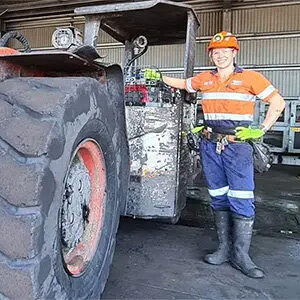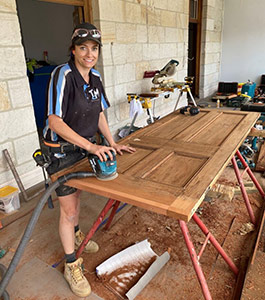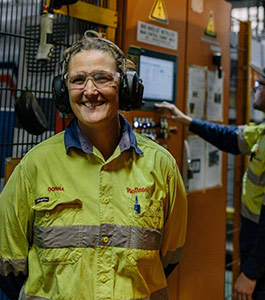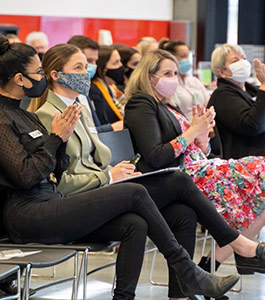Today, TWA hosted our second Wellbeing Event entitled “Take a Deep Breath”. This session aimed to support the physical and mental wellbeing for tradeswomen and apprentices affected by COVID. Many apprentices and tradeswomen have been affected by a range of personal and work issues due to the pandemic. Employment, financial and personal stressors emerge, leading to anxiety and depression.
Audiences were introduced to the practice of Ujjai Pranayama, a breathing meditation technique. This practice can assist individuals to reach a more calm, composed and relaxed state of being.
Breathing and its Effect on Wellbeing
Breathing is automatic, it was the first thing we did when we were born. We’re not particularly aware of it day to day. We only really think about it if perhaps we’re put in a stressful situation where we need to stay calm. The first suggestion you’ll get from experts is, if you are starting to stress out, take a deep breath and try and relax. There’s a really good reason they’re suggesting it. It’s connected to our autonomic system, which starts at the brain, and is tapped into each and every one of our organs. It governs their regulation and response to certain events.
Our autonomic system is divided into two parts – the parasympathetic and the sympathetic system. Our parasympathetic state is one of calm, rest and relaxation – our breathing is slow and deep, our heartbeat slows, our muscles are relaxed and our digestive system works freely. Conversely, if we’re frightened or stressed out, our sympathetic system responds – our breath is shallow and fast, our heart races, our muscles constrict and essentially we’re telling other functions to pause. Once the stress is over, we return to a parasympathetic state. But what if we experience chronic stress? It will adversely affect our body, our functions, our emotions and mental health. Therefore we need to consciously trigger the parasympathetic response through breathing meditation techniques regularly.
Through regular practice we can slow our heart rate, decrease blood pressure, relax muscles and dampen anxiety. We can also tackle that general feeling of being out of control in our thoughts and feel much more calm and collected.
Breathing Meditation Practice
In the session, audiences created a quiet and comfortable atmosphere to meditate in. They were then slowly introduced into the breathing technique over a 30 minute session, carefully guided through each stage. At the completion of each stage they received a “check in” to see how they were going during the practice.
The response from our audience was really positive – “I’m feeling so relaxed”, “I’m much more calm now” . Each member took away a positive tool in order to help them regularly incorporate into their daily lives. Through regularly taking a small session of breathing meditation, they may be able to combat stress and anxiety and create a sense of calm and relaxation.
TWA will be hosting another Wellbeing Workshop next week “Strength through Compassion”. This will focus on being compassionate and kind to ourselves, and then becoming more effective in our compassion towards other people. We hope you can join our next session on Friday 18 September at 4pm – https://tinyurl.com/y5cxzjvr.





